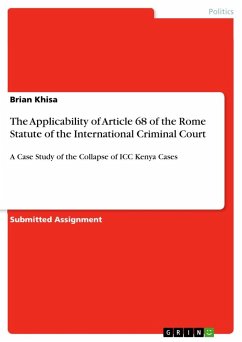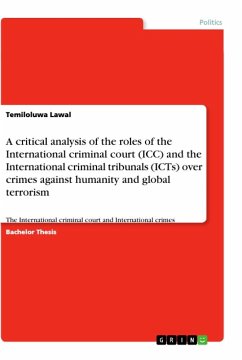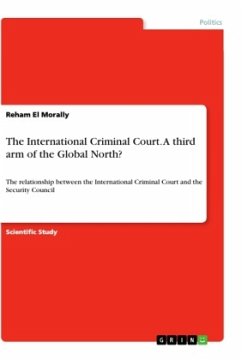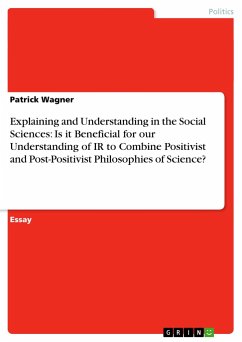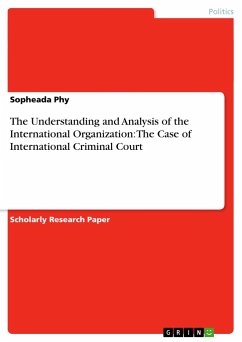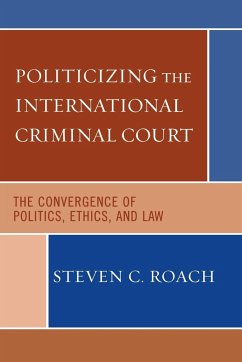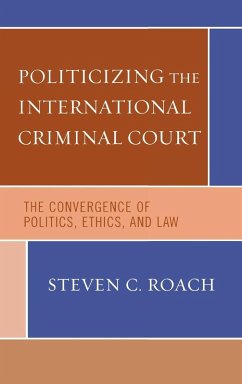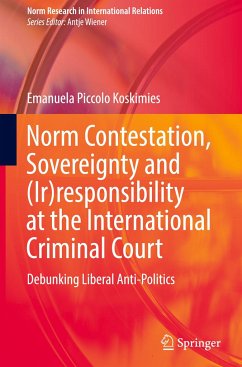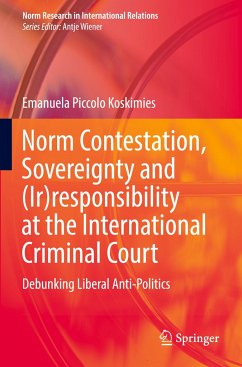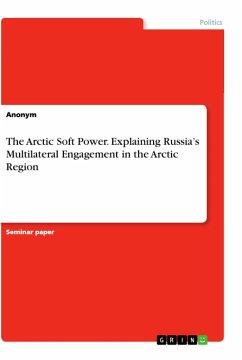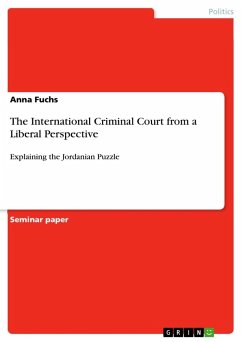
The International Criminal Court from a Liberal Perspective
Explaining the Jordanian Puzzle

PAYBACK Punkte
0 °P sammeln!
Seminar paper from the year 2012 in the subject Politics - International Politics - Topic: International Organisations, grade: 1,3, University of Tubingen (Institut für Politikwissenschaft), course: Introduction to International Relations, language: English, abstract: [...] What seems to be the greatest puzzle about the "ICC-story" is the fact that the Statutewas adopted despite US opposition. It seemed impossible that an independent courtcould be created without the support of the US. And it is indeed remarkable that somany states agreed on a strong, independent ICC although the US also laun...
Seminar paper from the year 2012 in the subject Politics - International Politics - Topic: International Organisations, grade: 1,3, University of Tubingen (Institut für Politikwissenschaft), course: Introduction to International Relations, language: English, abstract: [...] What seems to be the greatest puzzle about the "ICC-story" is the fact that the Statutewas adopted despite US opposition. It seemed impossible that an independent courtcould be created without the support of the US. And it is indeed remarkable that somany states agreed on a strong, independent ICC although the US also launched an activecampaign against it and tried to pressure states into signing bilateral agreements inorder to prevent US citizens from becoming subjects to ICC jurisdiction. But, in myopinion, this is not the only puzzle, because there was another state that acted differentlythan expected. This state is Jordan, who was the only Arab state not only to support theICC but also to join the Like-Minded Group prior to the conference. It is not surprisingthat authoritarian regimes opposed the court. It is surprising however, that Jordan wasthe exception to that rule and I think that decision deserves to be examined further.While republican liberalism offers an explanation to US behavior regarding the ICC, itfails at explaining the Jordanian case. It predicts that authoritarian regimes will sidewith well established democracies in opposition to binding international human rights regimes. Although this did not count for Jordan, I still think that liberalism can explainwhy the Kingdom supported the ICC. In order to prove this hypothesis, I will outline thebasic assumptions of (republican) liberalism. Afterwards I will briefly describe thepolitical, economic and societal situation in Jordan in order to identify the aspectsneeded to apply the theory. Finally, I will show how liberalism can explain why Jordanas an authoritarian regime supported the ICC although it was not "supposed to".




